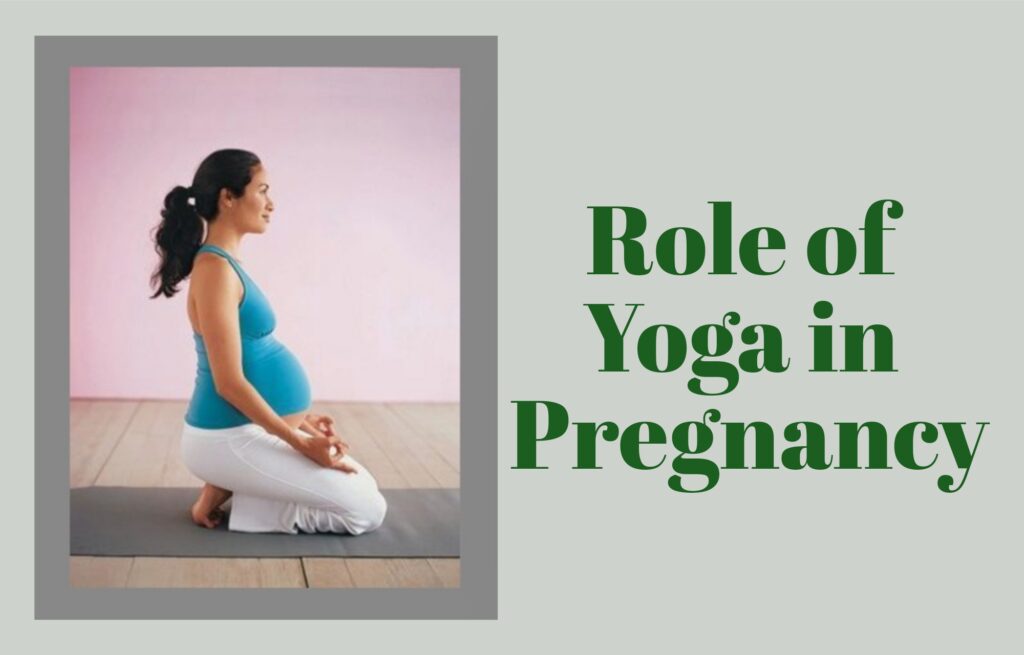What is the Role of Yoga in Pregnancy?
Yoga plays a crucial role in pregnancy by offering a holistic approach to both physical and mental well-being for expectant mothers. The practice of yoga during pregnancy is specifically designed to accommodate the changing needs of the body and the heightened emotions that often accompany this transformative period.
Physically, yoga helps in several ways. It promotes flexibility and strength, which are beneficial as the body adjusts to the increasing weight and shifting center of gravity. Specific yoga poses can alleviate common discomforts such as back pain and swollen ankles, while also improving circulation and digestion. Gentle stretching and breathing techniques enhance relaxation and reduce muscle tension, preparing the body for labor and delivery.
Beyond its physical benefits, yoga provides emotional and mental support during pregnancy. The emphasis on deep breathing and mindfulness helps mothers-to-be manage stress, anxiety, and mood swings that may arise due to hormonal changes. By fostering a sense of calm and inner balance, yoga empowers women to connect with their bodies and their growing babies more profoundly.
Moreover, prenatal yoga classes offer a supportive community where expectant mothers can share experiences and build friendships. This sense of belonging can contribute to a positive outlook on pregnancy and childbirth.
Safety is paramount in prenatal yoga, with instructors trained to modify poses and sequences to suit each trimester and individual needs. Pregnant women are encouraged to listen to their bodies and practice within their comfort zones, avoiding strenuous poses and poses that involve lying flat on the back after the first trimester.
In essence, yoga during pregnancy serves as a gentle yet powerful tool for enhancing physical health, emotional well-being, and spiritual connection, making it a valuable practice for expectant mothers seeking a holistic approach to their prenatal care.

Why Yoga is must while Pregnancy?
Yoga is considered essential during pregnancy for several compelling reasons that benefit both the mother and the growing baby: – The Yoga Art
- Physical Benefits: Pregnancy brings significant physical changes, such as weight gain, shifts in posture, and muscle tension. Yoga helps maintain and improve flexibility, strength, and stamina, which can alleviate common discomforts like back pain, sciatica, and swollen joints. Gentle yoga poses also promote better circulation and digestion, crucial for both maternal and fetal health.
- Preparation for Labor and Delivery: Certain yoga poses and breathing techniques are specifically designed to prepare the body for childbirth. These practices can help strengthen the pelvic floor muscles, improve endurance, and teach effective breathing patterns that can be utilized during labor to manage pain and stay calm.
- Emotional Well-being: Pregnancy often comes with emotional ups and downs due to hormonal changes and the anticipation of motherhood. Yoga encourages mindfulness, deep breathing, and relaxation, which can reduce stress, anxiety, and mood swings. It promotes a sense of inner peace and emotional balance, fostering a positive outlook during pregnancy.
- Bonding and Connection: Practicing yoga during pregnancy creates a special opportunity for mothers to connect with their growing babies. Through mindfulness and focused breathing, expectant mothers can develop a deeper awareness of their bodies and the life within them, enhancing the bond between mother and child.
- Community and Support: Prenatal yoga classes provide a supportive environment where pregnant women can share experiences, concerns, and joys with others who are going through similar experiences. This sense of community can reduce feelings of isolation and increase confidence in one’s ability to navigate pregnancy and childbirth.
- Safe and Holistic Approach: Yoga during pregnancy is generally safe when practiced under the guidance of a qualified instructor who understands the unique needs and limitations of expectant mothers. Poses can be modified as pregnancy progresses to ensure comfort and safety.
Overall, yoga is considered a must during pregnancy because it addresses the physical, emotional, and spiritual aspects of this transformative journey, supporting maternal well-being and preparing women for the challenges and joys of childbirth and motherhood.

Benefits of Yoga during Pregnancy.
Yoga offers numerous benefits during pregnancy, catering to the unique physical and emotional needs of expectant mothers:
- Physical Well-being:
- Flexibility and Strength: Yoga helps maintain and improve flexibility in muscles and joints, which can alleviate the discomforts associated with pregnancy such as back pain and stiffness.
- Stamina: Gentle yoga practices enhance endurance and energy levels, helping pregnant women cope better with the physical demands of pregnancy and prepare for labor.
- Posture: As the body changes during pregnancy, yoga promotes better posture and alignment, reducing strain on the spine and promoting overall comfort.
- Preparation for Labor and Birth:
- Pelvic Floor Strength: Certain yoga poses, such as squats and pelvic tilts, strengthen the pelvic floor muscles, which are crucial for labor, delivery, and postpartum recovery.
- Breathing Techniques: Yoga teaches deep breathing exercises (pranayama) that help manage pain during labor, promote relaxation, and increase oxygen supply to the baby.
- Emotional and Mental Health:
- Stress Reduction: Pregnancy can bring about stress and anxiety; yoga provides tools such as mindfulness and relaxation techniques to reduce stress levels and promote emotional well-being.
- Mood Regulation: Practicing yoga releases endorphins, the body’s natural mood elevators, which can help stabilize mood swings and promote a positive outlook.
- Bonding with Baby:
- Mindfulness and Connection: Yoga encourages mindfulness and awareness of the body and baby’s movements, fostering a deeper connection between mother and child during pregnancy.
- Relaxation: Relaxation techniques in yoga, such as guided meditation and visualization, can create a peaceful environment for bonding with the unborn baby.
- Community and Support:
- Social Connection: Prenatal yoga classes provide a supportive community where pregnant women can share experiences, concerns, and joys with others in a similar stage of pregnancy.
- Expert Guidance: Qualified yoga instructors can offer personalized modifications and guidance, ensuring safety and comfort throughout the practice.
- Holistic Health Benefits:
- Improved Circulation: Yoga poses and movements promote better circulation, which is beneficial for both the mother and baby’s overall health.
- Digestive Health: Gentle twists and movements in yoga can aid digestion and alleviate common pregnancy-related digestive issues such as constipation.
In summary, yoga during pregnancy supports overall health and well-being by addressing physical comfort, emotional stability, and fostering a deeper connection between mother and baby. It provides essential tools and practices to navigate the challenges of pregnancy and prepare for childbirth with confidence and strength.
